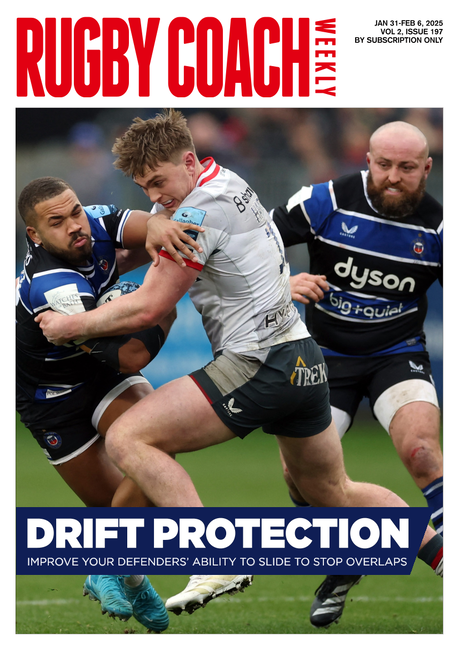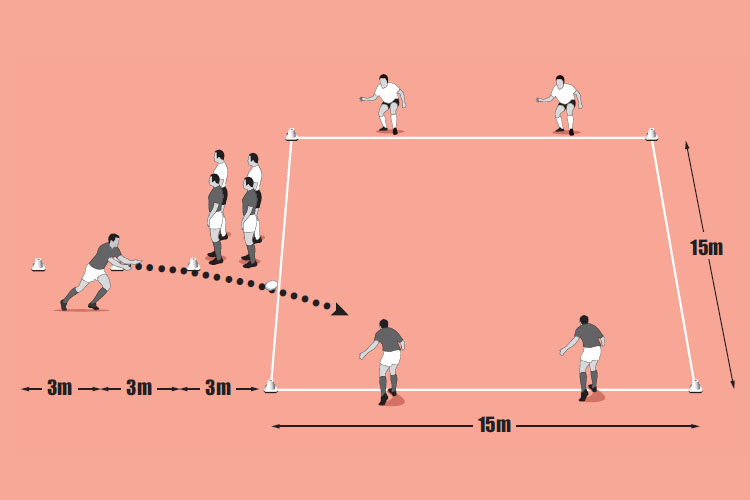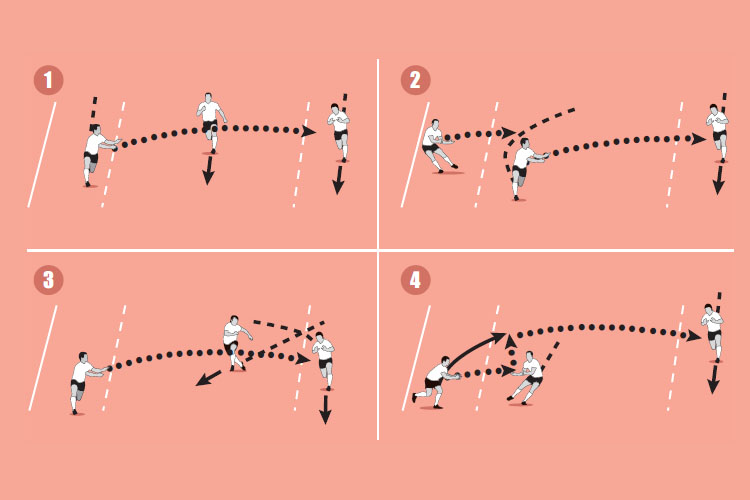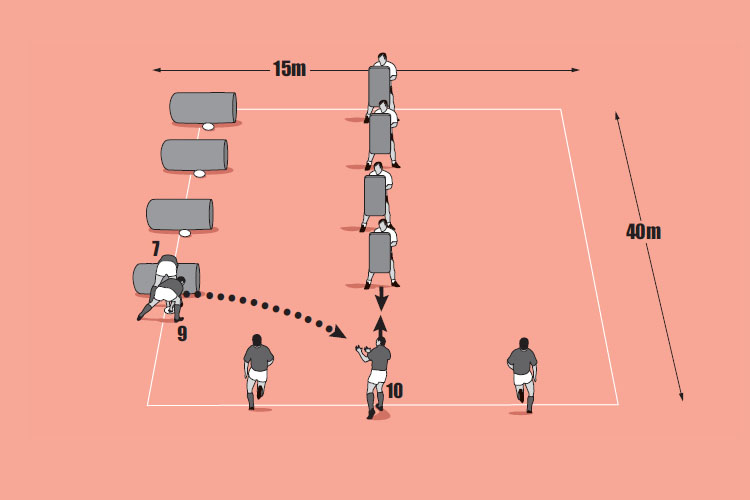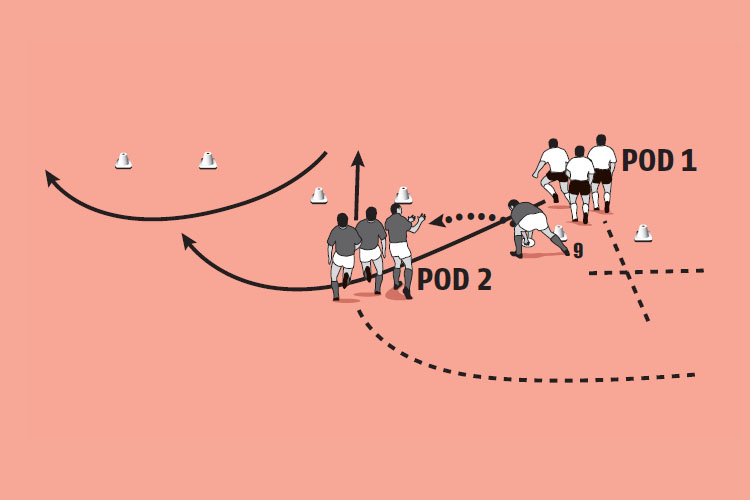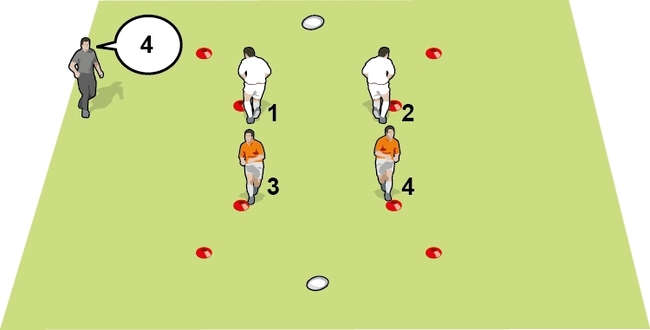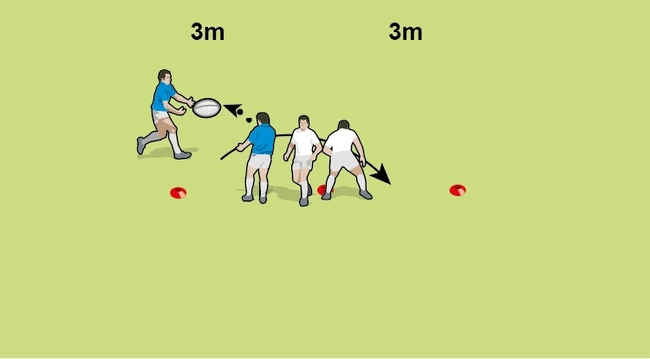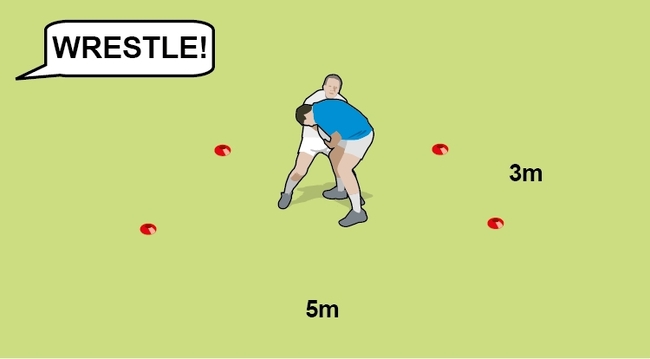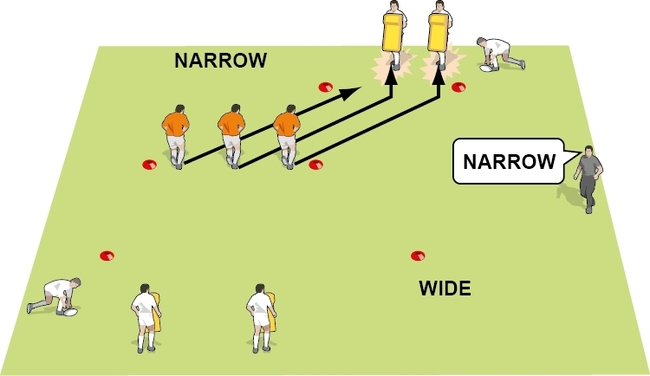Four-man contact pods
This session works on players taking the ball into contact in groups of four. This is most likely in a game when you know the opposition is a good rucking team, the referee might be loose on hands in the ruck, or you need to increase your chances of ball retention.
Warm up time: 5-7
Session time: 8-10
Development time: 10-15
Game time: 10-15
Warm down time: 5-8
What to think about
Working in groups of four in the contact area, the first supporting player in contact clears over the ball (and not go for threats at the side). Once over the ball, they keep going forward, because the two players behind will stop over it. This first player must stay on their feet because they will be easy to spot by the referee if they go to ground. The ball carrier must have the confidence to stay on their feet when they take contact and drive forward. But with three support players around them, they can go to ground and snap the ball back quicker than normal. Therefore, in some cases, players can go to ground earlier and you can clear quicker, with a little less go-forward than normal, to avoid being disrupted.set-up
- Ball carrier: Take charge and make sure your supporters are in place to take the ball to the contact point.
- Support: Don’t crowd the ball carrier. First man beyond the ball, the rest protect.
What you get your players to do
Put five players close together at the side of four lettered gates. Shout which gate to run to. A feeder runs to the ball at the side of the gate, while the four players run round and take a pass (see picture 1). The gate is protected by two pad holders. The ball carrier attacks the pad holders, snaps to the ground and three support players drive out the pad holders. Make sure the first support player drives well beyond the ball.
Development
Put five attackers inside the small box and three other attackers outside, with a feeder ready to release them. Get a pad holder to move into one of three lettered “gates” and this is where the first attack will be (see pictures 2 and 3). The ball carrier runs at the gate and into the pad holder, with his two support players and one of the other attackers. When they win the ball, the ball is fed to the other attackers who do the same depending on where a second pad holder runs.Related Files
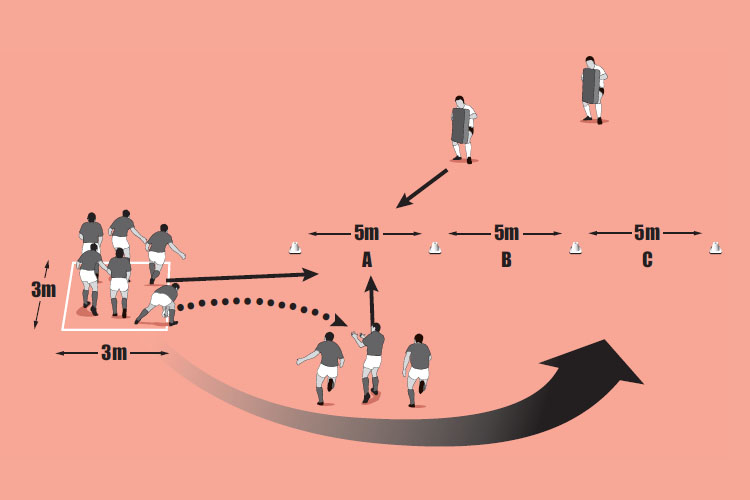
Game situation
Put into a game situation by removing the cones and pads, and having six defenders spread out. The first four-man attack pod must be at least 5m away from the five close attackers. Play full contact. Finish after two rucks have been cleared.
What to call out
- “Call to go to ground”
- “Square up before the contact area”
- “Sweep low over the ball”
Newsletter Sign Up
Coaches Testimonials

Gerald Kearney, Downtown Las Vegas Soccer Club

Paul Butler, Florida, USA

Rick Shields, Springboro, USA

Tony Green, Pierrefonds Titans, Quebec, Canada
Subscribe Today
Be a more effective, more successful rugby coach
In a recent survey 89% of subscribers said Rugby Coach Weekly makes them more confident, 91% said Rugby Coach Weekly makes them a more effective coach and 93% said Rugby Coach Weekly makes them more inspired.
Get Weekly Inspiration
All the latest techniques and approaches
Rugby Coach Weekly offers proven and easy to use rugby drills, coaching sessions, practice plans, small-sided games, warm-ups, training tips and advice.
We've been at the cutting edge of rugby coaching since we launched in 2005, creating resources for the grassroots youth coach, following best practice from around the world and insights from the professional game.


